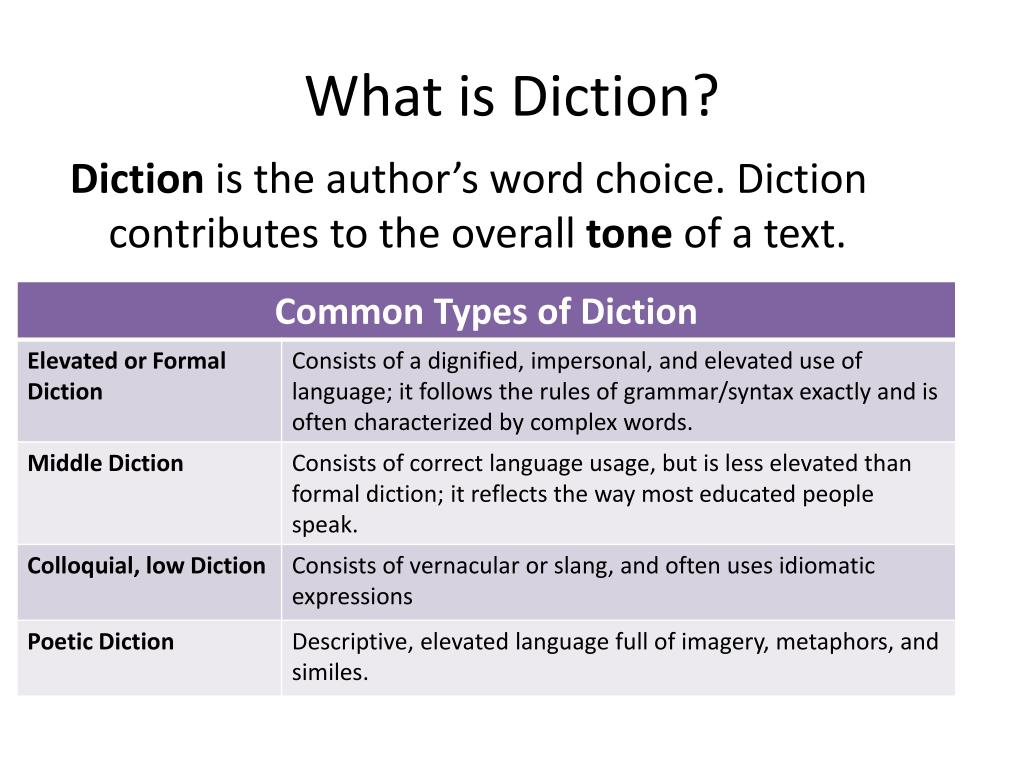· diction in speech refers to enunciation, or how well a speaker pronounces their words. Clear diction is important. Diction usually implies a high level of usage; Well-chosen words help a writer or a speaker to pass a message clearly and easily. Diction is usually judged in reference to the prevailing standards of proper writing and speech and is seen as the mark of quality of the writing. · diction refers to the speaking/writing style or the choice of words that a speaker or writer uses. She may also use the term when commenting on the word … Diction is used … His diction wasnt very good. Degree of clarity and distinctness of pronunciation in speech or singing; When your english teacher complains about some of the words you chose to use in an essay, shes talking about your diction. It can reflect education, culture, class, and can significantly affect the style or tone of a piece of writing or speech. [middle english diccion, a saying, word, from old french, from latin dictiō, dictiōn-, rhetorical delivery, from dictus, past participle of dīcere, to say, speak; Diction is a literary device that allows a writer to carefully choose words and vocabulary to communicate to the reader as well as establish a specific voice or writing style. Diction refers to the choice and use of words and phrases in speech or writing. It is also understood as the selection of certain words or phrases that become peculiar to a writer or character. The choice of words has a significant effect on the quality of a speech or writing. Someones diction is how clearly they speak or sing. / ˈdɪk·ʃən / add to word list the manner in which words are pronounced (definition of diction from the cambridge academic content dictionary © cambridge university press) It refers chiefly to the choice of words, their arrangement, and the force, accuracy, and distinction with which they are used: A person who speaks clearly has good diction, while a person who mumbles or mispronounces their words has poor diction. See deik- in indo-european roots. ]
Diction The Secret Weapon Of Poetry S Greatest Masters
· diction in speech refers to enunciation, or how well a speaker pronounces their words. Clear diction is important. Diction usually implies a high level...




